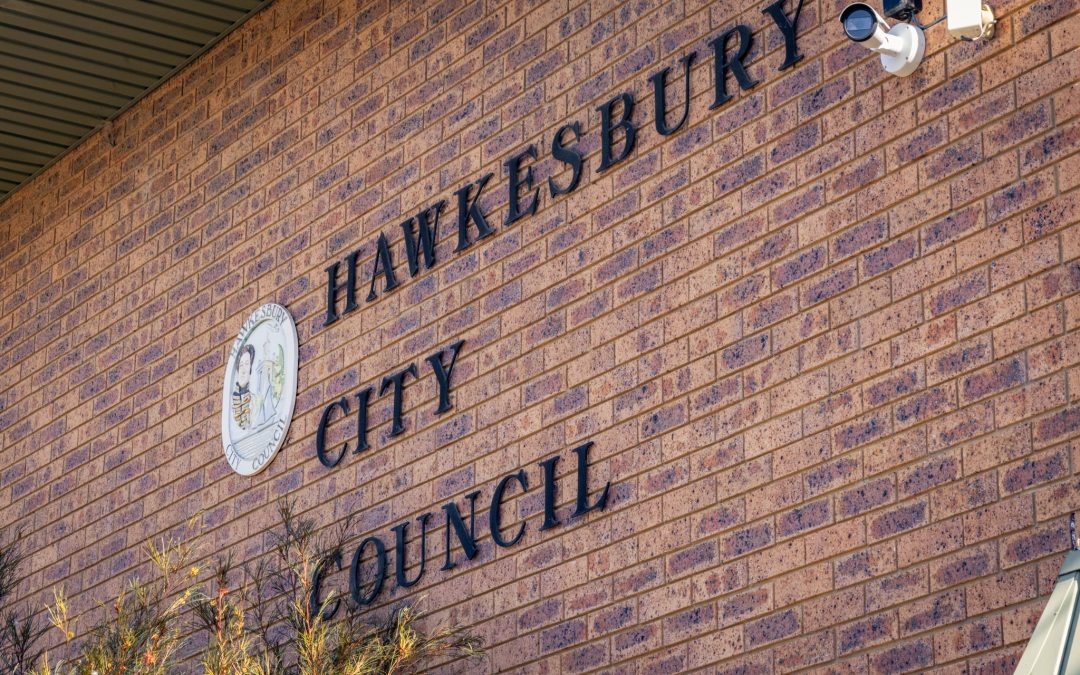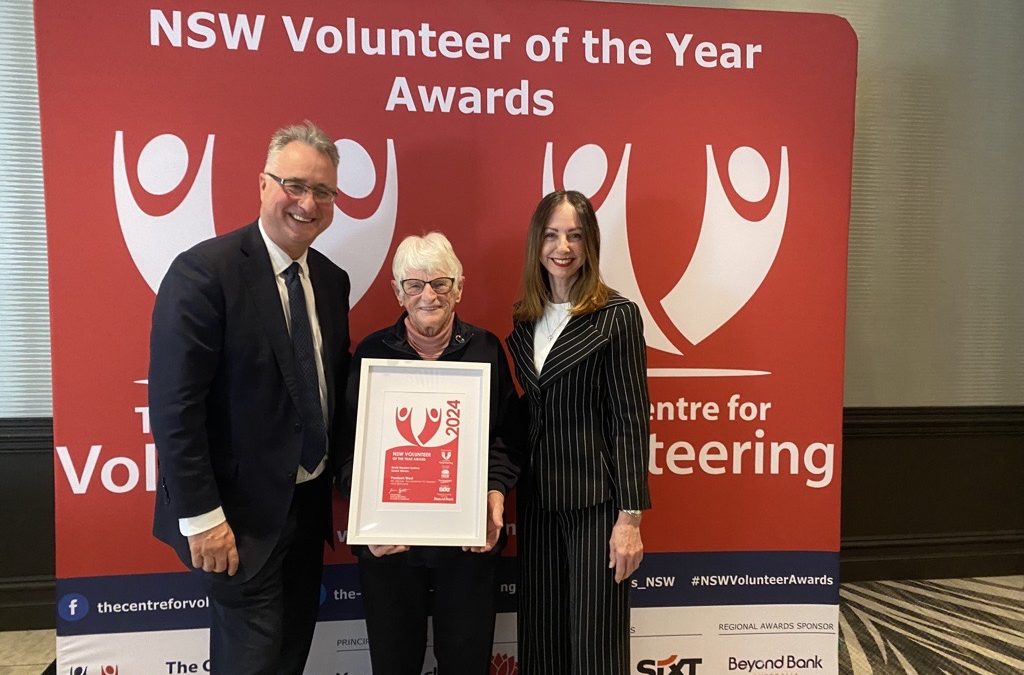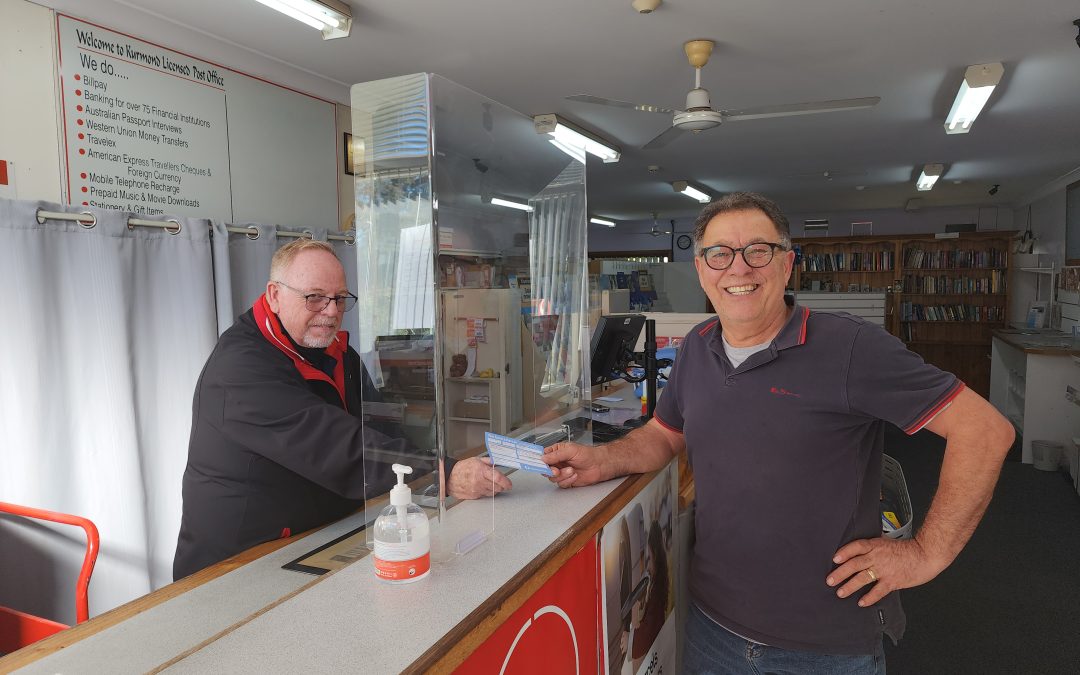Hawkesbury Post contacted all...


Hawkesbury Post contacted all...

In a heartwarming recognition of community...

After more than two decades of dedicated service, the...
Cllr Zamprogno – who is also a Hawkesbury councillor – says the HRCC – which covers Penrith, Blacktown, Hills Shire and Hawkesbury local government areas – may even have to let staff go and sell off assets including its $1m Weedosaurus because the State has not given it the $238,000 it expected.

HRCC Chairman Nathan Zamprogno and General Manager Chris Dewhurst in front of the repaired, but now de-funded $1m ‘Weedosaurus’ weed harvester
“HRCC has traditionally been the lead agency for weed control on the river, with significant specialised equipment – in the form of the giant ‘Weedosaurus’ harvester, and scientific knowledge about weed control,” Cllr Zamprogno said.
“It was therefore very concerning when we learned in late November that the NSW State Agriculture Minister, Adam Marshall, had abruptly withdrawn $238,000 of funding for the remainder of the financial year.”
But Minister Marshall says the funding shortfall is nothing to do with him, his spokesperson telling the Post, “The Minister has no input on the management of the Weeds Action Program – this is managed by Local Land Services”.
However, Local Land Services is a state government body and Mr Marshall is introduced on its website as “Our Minister” complete with his picture.
Cllr Zamprogno says, “the Minister is absolutely responsible. The LLS were inserted as a layer of bureaucracy. The LLS seem to put a lot of people offside. The Minister could fix this in an instant.”
“I believe the funding allocation mechanism, through mid-level bureaucrats at LLS, has failed,” says Cllr Zamprogno.
“Worse, the announcement [of the funding shortfall] was made in the lead-up to Christmas which really is the time when our harvester, and the weeds, are most active.”
Since November, Cllr Zamprogno and HRCC General Manager Chris Dewhurst have been using all their diplomatic skills to try and get the funding restored but so far their efforts have hit a brick wall, despite also calling on Hawkesbury MP Robyn Preston, Senator for Western Sydney Marise Payne and Federal MPs Melissa McIntosh and Stuart Ayres to add their support and influence.
The HRCC was set-up in 1948, and represents over 830,000 Sydneysiders over 3800 square kilometres.
It is responsible for waterway health, environmental protection, landowner education, and weed control (both terrestrial and aquatic) along the Hawkesbury-Nepean River and many of its feed-rivers and tributaries.
Each of the four member councils send delegates to HRCC to sit as its Board.
In January 2020, in a bit of expensive bad luck, the one million dollar ‘Weedosaurus’ harvester used for keeping the river flowing pulled its mooring and sank near Penrith Weir during a flood.
“We were grateful to gain $130,000 in Federal funding to salvage, repair and recommission the harvester, and were preparing to resume on-water operations – especially as there are rowers training on the river at Penrith in preparation for the Tokyo Olympics. They are relying on us to keep the river clear,” said Cllr Zamprogno
But he says the river could easily become clogged now because of the loss of the $238,000 in funding.
Councillor Zamprogno said the HRCC Board is very concerned about rower and community safety on the rivers.
“Recently we received a report of a schoolgirl rowing crew capsize their boats last month at Penrith as they caught their oars in the weed and rolled the boat. Some expensive electronics and kit was lost.
“The excessive weed could also prevent safety boats from accessing the river, as they also get caught in the weed.”
“There is a real risk to our multiple world champion and Paralympian, Erik Horrie capsizing. Due to his impairment and boat class, he is strapped into the boat and if he capsized it would really be difficult to get him out of the boat and water.”
Cllr Zamprogno says HRCC has had State Government funding for about 10 years.
“The harvester itself was funded by the Commonwealth Government and that operational funding was shared between the HRCC and LLS. The ratepayer burden for HRCC’s operation was only around 50 per cent of its total costs – the reliability and co-operation between these State and Federal grants are critical for us to plan over the long term for service delivery.”
The loss of the State funding is a major blow, says HRCC’s Chairman.
“That’s operational funding, which means funding to actually pay staff to drive the harvester. Now that’s gone. We feel that it makes a mockery of the Federal Government providing such generous funding if the State Government then drops the ball so that those activities can’t take place.”
“And without the pre-emptive management which we were doing, it’s almost guaranteed to happen again in the future.”
LLS told us funding was not cut, but HRCC General Manager Dewhurst says no reason was given for the funding shortfall.
“They didn’t provide us with any detailed rationale. There have not been cuts to funding across the board, so that’s not the reason. The river is owned by the State, it’s not like a park, it doesn’t belong to councils.”
But an LLS spokesman said: “The Weeds Action Program (WAP) is a grants program that allocates funding on an annual basis.”
“Applicants must demonstrate eligible projects are present in their area, their ability to carry out the works and must meet reporting obligations as part of the grants process. The most recent funding expired in June 2020 as scheduled. Any changes to a Local Control Authority’s funding levels year-on-year are reflective of the eligibility or otherwise, of their application.
“The WAP is an annualised grants program with clear eligibility requirements with funding only provided for a 12-month period which should be taken into account by applicants.
“Annualised grant or funding programs are common in NSW to ensure the agility of programs to respond to changing conditions.
“Applicants should manage resources based on this fact.”
As you’re here…
Subscribe to Hawkesbury Post – it’s free and you can receive email alerts as news breaks.
And please help us continue to provide quality daily online news as it happens. Support Hawkesbury Post from one dollar, right here.